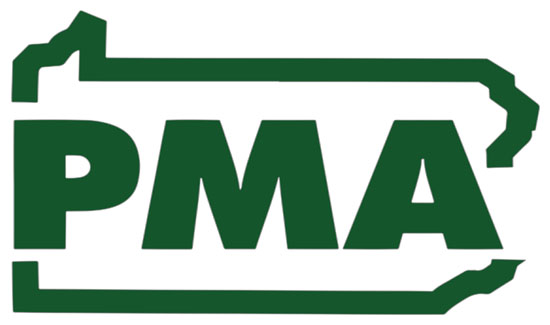Business Tax Reform Nears Finish Line

Pennsylvania’s business tax burden could finally be on the verge of real reform. With strong bipartisan support, the House last week approved legislation that adjusts two core business taxes as the current high rates and restrictions have inhibited economic growth and driven investment from the commonwealth for decades. The legislation, HB 1960, sponsored by state Rep. Joshua Kail (R-Beaver/Washington), will phase-in a reduction in the 9.99% Corporate Net Income Tax (CNIT), the highest flat rate in the nation, and lift a cap on the application of the Net Operating Loss (NOL) provision – a cap in place in few other states.
“Pennsylvania has suffered from chronic economic underperformance, year after year, decade after decade,” said PMA President & CEO David N. Taylor. “Our business tax structure – both rates and policies – has reduced the tax collections that a stronger economy would have delivered. By enacting a competitive CNIT rate and allowing greater deductibility of recent business losses against current and near-future tax obligations, Pennsylvania’s ability to compete for investment, jobs, and growth will be improved.”
The provisions in Kail’s bill will likely be incorporated into negotiations on the General Fund budget as lawmakers and Gov. Tom Wolf’s office hash out details of the spending plan for the new fiscal year starting July 1. For his part, the governor has in the past proposed cutting the CNIT rate but saddled his proposal with burdensome caveats, including a move to mandatory unitary combined reporting (MUCR), leading to costly legal wrangling with the Department of Revenue over what constitutes taxable income. MUCR was not part of the governor’s formal budget proposal this year, although it included other provisions to complicate tax compliance.
Under Kail’s bill, the CNIT rate would drop to 8.99 percent beginning on Jan. 1, 2023. Future annual reductions of a half a point would occur if budget surpluses in those years are above $500 million.
NOL relief works in a similar manner. Per House Republican analysis, the bill includes a trigger mechanism to increase the current net NOL deduction cap of 40% of taxable income permitted under the CNIT based on the General Fund budget surplus for the fiscal years 2022-23 and 2023-24. If the budget surplus exceeds $750 million in fiscal year 2022-23, the NOL cap shall be increased to 45% for tax year 2024 income. Further increase in the cap would be tied to future $750 million budget surpluses when that occurs.
“The last time the Corporate Net Income Tax (CNIT) was cut in Pennsylvania was in 1995, and the last time a bill addressing this issue passed the House was in 2013,” Kail said in a statement released with passage of his bill. “Time and time again, we have missed opportunities that would help Pennsylvania reach its economic potential. This legislation is a great step in the right direction.”
Pennsylvania loses people, their talents, and their investments, to other states and our business tax structure has a hand in those losses, according to an analysis put together by Carl Marrara, PMA’s Executive Director, last fall.
“Unsurprisingly, many of the high-performing states in the economic outlook rankings also rank highly on economic performance as they see in-migration and overall GDP growth,” Marrara wrote. “This is identified in the publication ‘Rich States, Poor States,’ with our dismal economic performance ranking of 45th, but is also solidified by the Atlas Van Lines 2020 Migration Patterns, showing that Pennsylvania has had outward migration, every year, in the past decade. Compare this to the high-performing states, and the same study shows in-migration into all of these states.”
As noted, the governor made no mention of the MUCR in his formal budget proposal, but his proposal, as noted by the Commonwealth Foundation’s Nate Benefield, “would disallow paying management fees to an affiliated entity – such as paying corporate headquarters for legal services – though these are valid business expenses.”
“Additionally, the proposal would require businesses to justify expenses as legitimate to the Department of Revenue – thus assuming businesses are guilty until proven innocent. Worse, Wolf’s tax plan offers no recourse for appeals in court. It gives the Department of Revenue’s tax collectors the final say to determine how much a business must pay in taxes.”
Earlier this week the governor’s office announced that Pennsylvania collected $6.5 billion in General Fund revenue in April, which was $1.8 billion — or 38.7 percent — above estimates, and the most tax revenue ever collected in a single month. Fiscal year-to-date General Fund collections total $40.7 billion, which is $4.5 billion, or 12.4 percent, above estimate.
If lawmakers commit a portion of that surplus to pro-growth business tax relief, with no caveats, employers and investors will respond by giving Pennsylvania a shot at earning their business.




